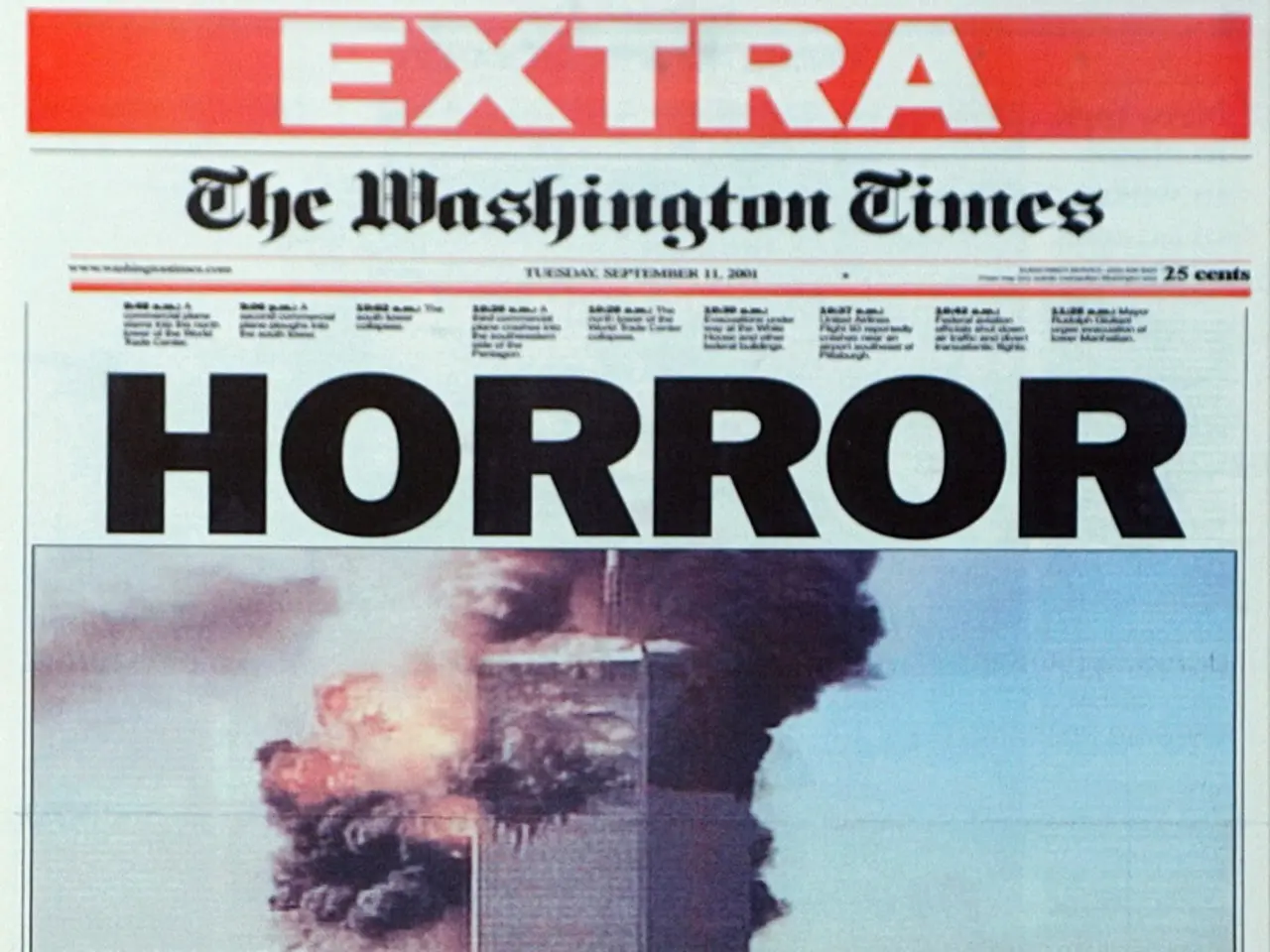Coerced Subscriptions to Public Broadcasting: An Indispensable Institute of Mind Control
In the world of German public broadcasting, a storm of controversy has been brewing. The mandate that requires appropriate representation of all social currents has come under scrutiny, with some arguing that it does not justify sectarian practices.
Julia Ruhs, a well-known presenter on ARD, has recently been ousted from her reportage format following a campaign by hundreds of her colleagues. This move has sparked debate about the culture within public broadcasting, with some comparing it to the 'DDR' television and even suggesting it has whiffs of Stalinism.
The treatment of Ruhs, along with other figures such as Dunja Hayali and Elmar Theveßen, has raised concerns about cult-like undertones within the system. Critics argue that these individuals receive unconditional solidarity, even when they spread untruths, while a single non-left, conservative voice is considered intolerable and met with purification zeal.
The upcoming Eastern German state elections could potentially shake things up. Some parties are considering withdrawing support for the compulsory broadcast fee due to anticipated shifts in voter sentiment and political dynamics. If the first domino falls, the forced fee Jacobins could face a cutoff of their comfortable position.
The Union parties might question their submissiveness towards left-wing ideological dictates. If they realise the exclusion furor applies to them, they might find it pointless to continue adhering to the broadcasting state treaties.
The left-sectarian forced fee broadcasting has been criticised for being so thoroughly infiltrated and affected by the left-green-woke cancer that some believe no cure is possible. However, alternative media continues to offer a refuge for those like Julia Ruhs, providing a platform for their voices and securing her professional future.
In this tumultuous time, the future of German public broadcasting remains uncertain. Whether it will undergo a much-needed reform or continue to be mired in controversy remains to be seen.
Read also:
- Today's most impactful photographic moments
- Support for Eric Adams in The Post's Letters to the Editor on August 13, 2025
- Roosting Shark and Rambunctious Red Squirrels: Unconventional House Rental in Yorkshire Involving Aquatic Marvel, Squirrely Mayhem, and Mystical Planning Regulations
- Legal Dispute Dismissed with Humor: Supreme Court Laughs off Another Civil Matter Mislabeled as Criminal Prosecution








